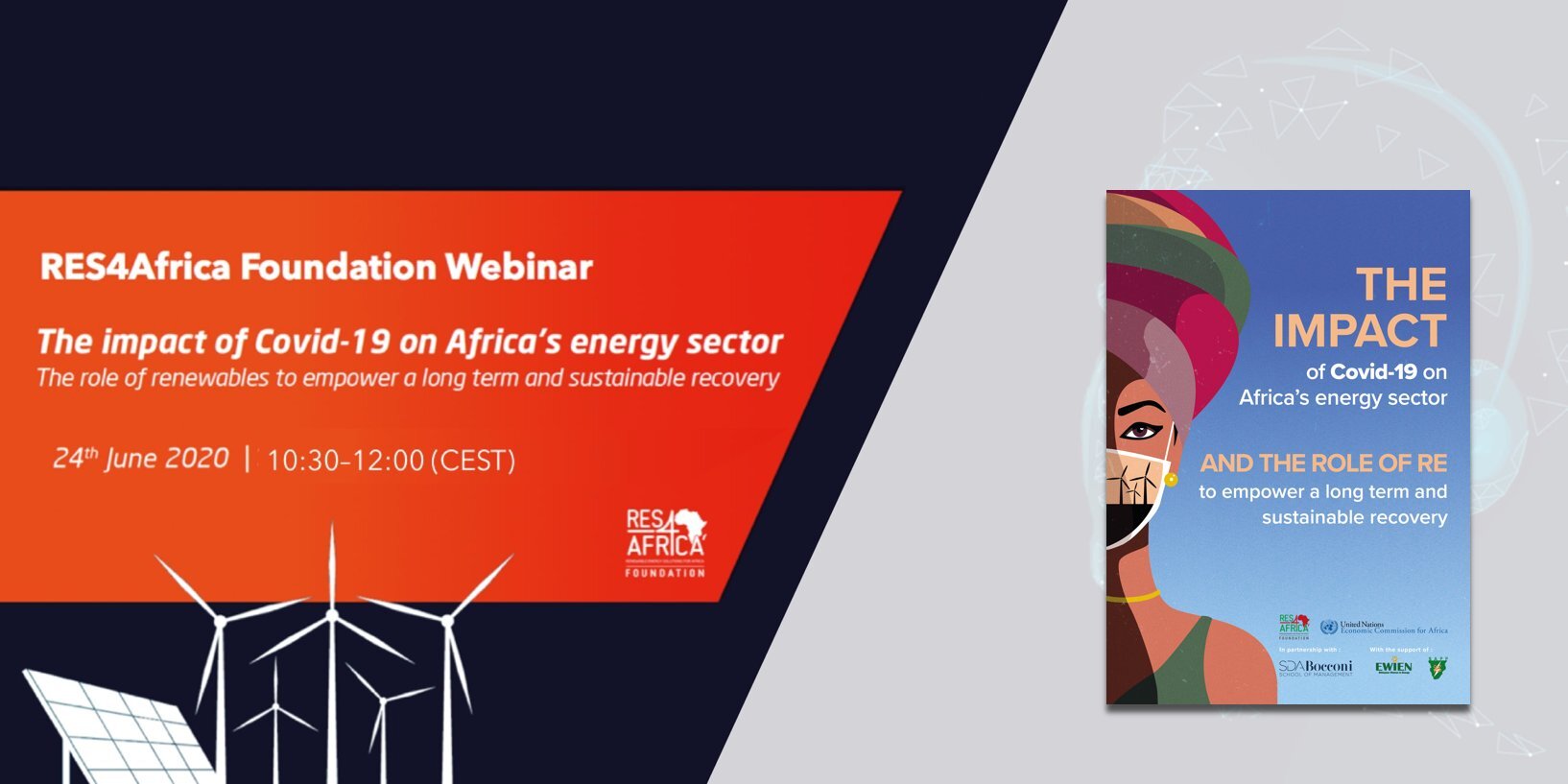
- This event has passed.
Webinar: The impact of Covid-19 on Africa’s energy sector

Details
Title: The role of renewables to empower a long term and sustainable recovery
Date: 24th, June 2020
About
According to official data, the spread of Covid-19 in Africa is lower than in other geographies, but not less worrying. Africa has to face the pandemic with a fragile healthcare system and urban organisation characterised by overcrowded slums, where social distancing is practically impossible.
The other face of the pandemic is the dramatic economic consequence, empathised by a situation where 600 million people live in poverty and with no access to energy. Due to the Covid-19 crisis, the African economy is suffering by its dependency to other economies, by the collapse of commodity prices and for shutdown of the activities in response to the lockdown measures.
The renewable energy sector can play a fundamental role in the fight against Covid-19’s disastrous effects. Access to reliable and sustainable energy is a crucial need at all times, and becomes even more important for supporting essential services during a global crisis. In a period of extreme crisis such as the one we are experiencing, ensuring a continuous flow of electricity is essential to keep the strategic infrastructures of the countries alive. It is also a stimulus measure to boost the economic recovery, addressing short-term challenges as well as the longer-term structural shift towards a low-carbon economy.
The study, developed by the RES4Africa Foundation and the United Nations Economic Commission for Africa (UNECA) in partnership with SDA Bocconi and with the support of Southern African Power Pool (SAPP) and Ethiopian Women in Energy (EWiEn), aims to explore the impact of Covid-19 on the African economies and their energy sector. The study also analyses the role of renewable energy in the post-Covid phase, providing policy recommendations to sustain the growth in a new sustainable equilibrium.
Thanks to the partnership with local stakeholders such as SAPP and EWiEn, and thanks to the broader experience and knowhow of UNECA and SDA Bocconi, the study builds on reliable and accurate data.
©RES4Africa Foundation
